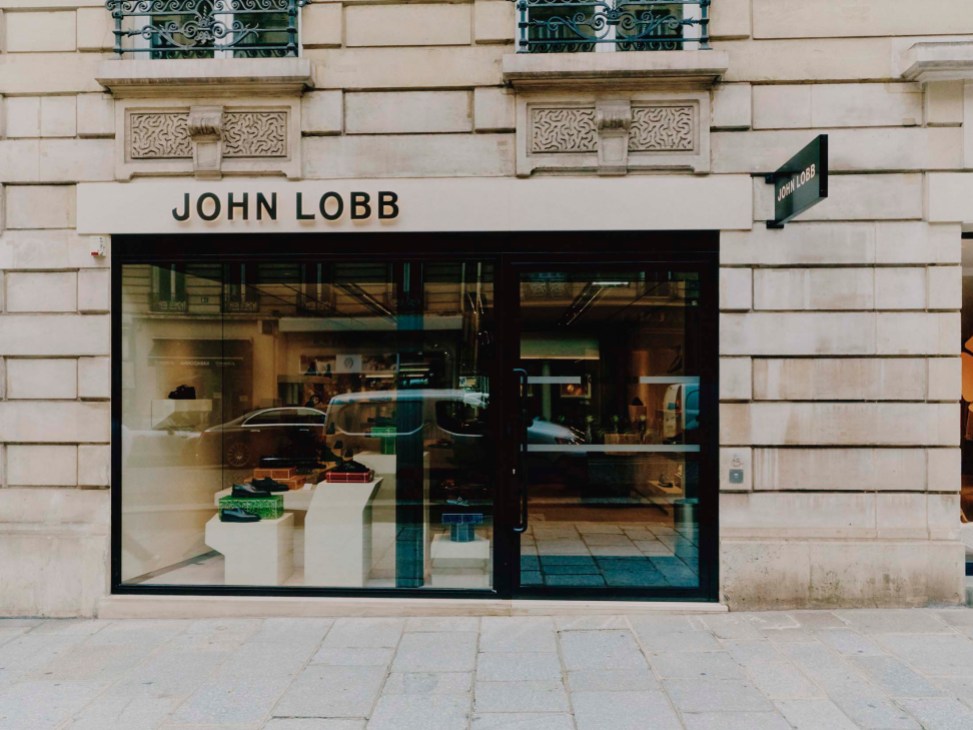How John Lobb footwear stays one step ahead
Paris finesse meets British craftsmanship in this slow-evolving luxury label. CEO Philippe Gonzalez walks us through its next chapter.
“The way that people move during the day has changed,” says Philippe Gonzalez, the global CEO of storied footwear brand John Lobb. “We need to be responsive to that.” When Monocle meets Gonzalez in London, he is fresh off an early Eurostar with just a small suitcase in tow. “It’s important for us to be like a sponge,” he says. “When you look at people in the street, you see men cycling in the morning with their children, taking them to school before heading to work. That’s why we developed a bag for our customers where they can put their shoes for their commute.”
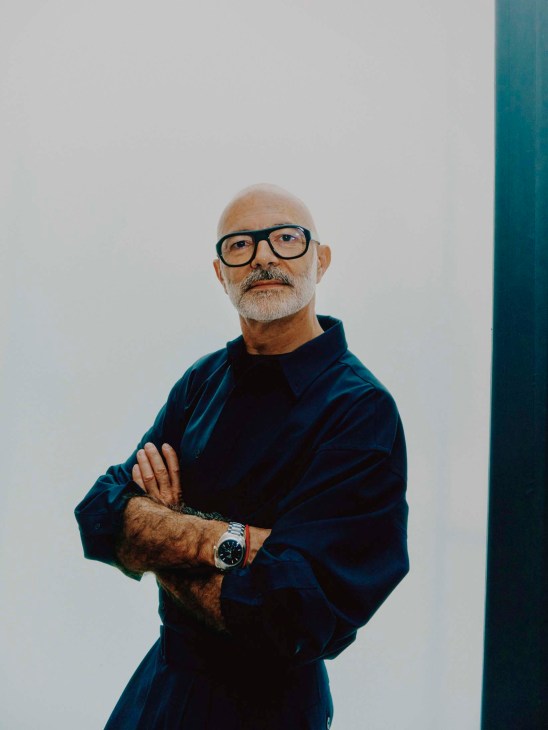
Gonzalez has been the custodian of John Lobb since 2019, safeguarding a heritage that is as compelling as it is complex. The brand combines British origins with French flair, a Northampton workshop with a Paris atelier and a ready-to-walk range of shoes with a top bespoke service. Spanning more than 150 years, its history includes a royal appointment from the Prince of Wales in 1863 and acquisition by French fashion house Hermès in 1976.
Under Gonzalez, the brand has stayed focused on its core category, men’s footwear. But working under an ethos of “slow evolution”, it has subtly updated its collections by making changes such as adding bike-friendly accessories, lighter fabrications and signature hardware. The introduction of replaceable rubber soles was also a direct response to the changing needs of the label’s customers.
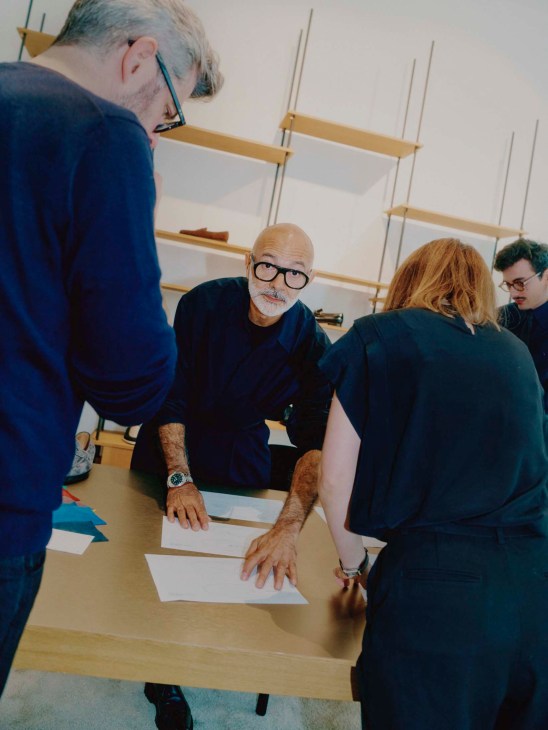
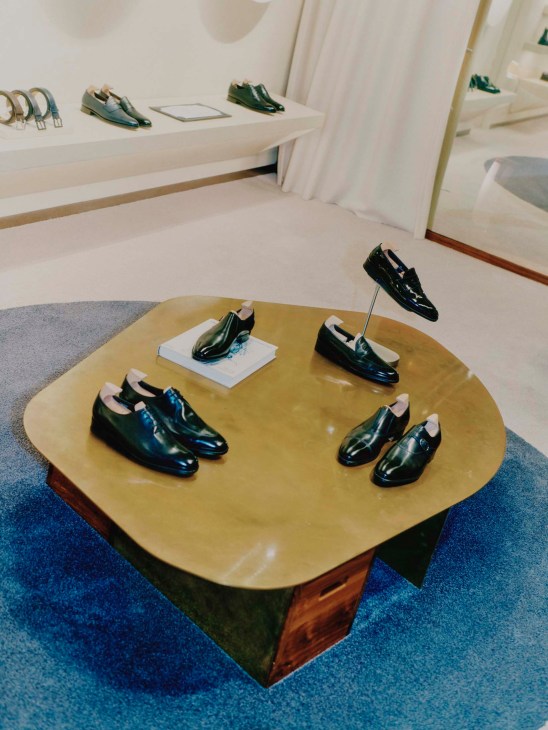
John Lobb’s latest collection, presented in a small gallery inside the Palais-Royal in Paris, includes perforated leather loafers in supple suede (a nod to driving gloves), derbies in new colour-block patterns and dress shoes embellished with silver buckles. The oval metal rings have become a discreet brand signifier that is only identifiable to those in the know.
Launches of the brand’s collections have become a mainstay at Paris Fashion Week Men’s but its production remains in the UK. When Monocle meets Gonzalez, he is on his way to Northampton, where 90 per cent of the brand’s ready-to-walk offering is crafted. There, he will present the spring-summer collection to the artisans and congratulate them for bringing it to life.
Having a manufacturing base in the English heartland of shoemaking is a point of pride for Gonzalez. People who hail from Northampton (as well as the local football team) are nicknamed “cobblers” because of the town’s historic association with the trade; the Goodyear-welted shoe-construction method originated there.
“Britishness means having a sense of humour and a certain attitude,” says Gonzalez – a warm, generous view of the UK that defies the general post-Brexit sentiment. “Our bestselling Lopez shoe was created in the 1950s and has a specific English sensibility, a sort of rock attitude. Our latest model, the Smith, is also infused with that same spirit but with a rubber sole. Our customers want to feel at ease throughout the day when they’re walking but also want to feel elegant.”
Bespoke services are available in the company’s Paris atelier, where every made-to-order pair of shoes begins with a conversation between the customer and the makers. This is followed by detailed measurements, trials and plenty of design discussions.

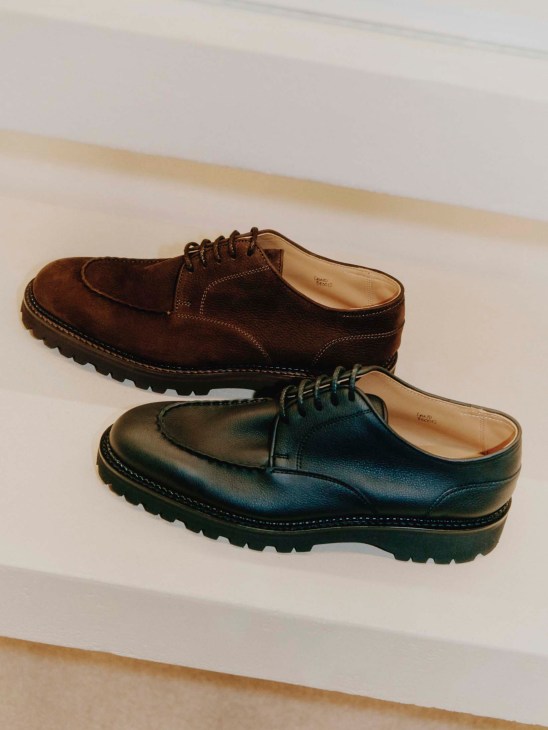
Gonzalez’s commitment to growing both the bespoke and ready-to-wear parts of the business is yielding results. He tells Monocle that despite an overall slowdown across the luxury industry, the past year has proven “healthy” for the brand. The Hermès Group reported a 9 per cent sales increase across the business for the first quarter of 2025. “We’re seeing a nice, steady growth that shows that our convictions are right,” says Gonzalez, pointing to a balance between the brand’s core markets, which include the US, Europe and Asia (particularly Japan).
The brand’s wholesale distribution includes partners in Dallas, Madrid, Seoul and Hong Kong. “We want to grow our presence where we are successful,” says the CEO. “We often say that it’s like a shoe: we only open a shop if it fits. My intention is not to reinvent the brand but to nurture it. After all, what are shoes? They are very personal objects that reveal a lot about their wearer. So we don’t want you to disappear behind the shoe.”
johnlobb.com
A tale of two shoemakers
John Lobb’s history stretches back more than 150 years, when the eponymous founder, an apprentice bootmaker from Cornwall, travelled to Australia during the gold rush. There, he developed shoes with hollow heels in which miners could stash contraband nuggets of gold. Despite these somewhat illicit origins, Lobb was named as the bootmaker for the Prince of Wales in 1863 upon his return to the UK. A shop on Regent Street followed in 1866, then a Paris boutique in 1899. The brand was acquired by Hermès in 1976; as part of this deal, Lobb’s descendants (who have their own workshop in London as a separate entity) requested that the sale of the Paris-made shoes be prohibited in the UK. Though John Lobb London and John Lobb Paris share a founder and a history, the two are not to be confused.
